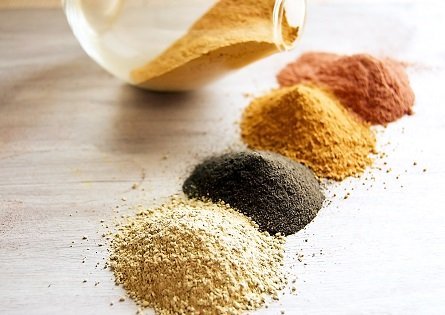- Home
- Product
- Patient
- Order Online
- Prescription Quote
- Collect at your Pharmacy
- Find a Pharmacy
- Find a Integrative Doctor
- Track my Medicine
- What is a Compounding Pharmacy?
- Child Friendly Medication
- Vet & Animal Compounding
- Easy to Swallow Pills
- Motion & Seasickness
- Medication without the Additives
- Unavailable Medications
- Schedule 8 Shipping Waiver
- Pharmacists
- Prescribers
- Shop
- FAQs
- About
- Careers
- Contact Us
- Home
- Product
- Patient
- Order Online
- Prescription Quote
- Collect at your Pharmacy
- Find a Pharmacy
- Find a Integrative Doctor
- Track my Medicine
- What is a Compounding Pharmacy?
- Child Friendly Medication
- Vet & Animal Compounding
- Easy to Swallow Pills
- Motion & Seasickness
- Medication without the Additives
- Unavailable Medications
- Schedule 8 Shipping Waiver
- Pharmacists
- Prescribers
- Shop
- FAQs
- About
- Careers
- Contact Us
Top 5 ways Bentonite is good for your health

Bentonite is a specific type of clay most commonly formed when layers of volcanic ash settle on wet or moist areas. It is sometimes referred to as montmorillonite and can be found, in variations, on most of the world’s continents.
We know that two and a half thousand years ago, medicinal clays such as Bentonite were being used by the ancient Mesopotamians and Egyptians to treat a range of health complaints. The ancient Greek statesman, Pliny, was an enthusiastic advocate of medicinal clay claiming it could cure everything from ‘copious menstruation’ to snake bikes!
While now days we don’t advocate Bentonite for either of those maladies, the mineral-rich clay has been scientifically proven to be very beneficial in the treatment of:
- Irritable Bowel Syndrome – constipation: In a study of 524 IBS sufferers, montmorillonite clay was found to greatly improve pain and discomfort associated with the condition. And what particularly impressed the researchers was that all study participants tolerated the therapy well, with no adverse side effects reported.
- Skin conditions: Bentonite has been used to treat skin conditions for thousands of years by ancient cultures including Indigenous Australians, Native Americans and cultures throughout Asia, the middle east and Europe. Modern studies have shown it to be particularly effective in the treatment of eczema, dermatitis and psoriasis. One study has found that Bentonite is more effective on nappy rash than one of the best-selling medications on the market.
- Wound dressings – particularly on the battlefield and for extremely remote locations where medical resources are limited. The clay is a natural antibacterial agent which supresses the growth of bacteria and when applied topically, has been shown to greatly reduce the risk of infection. Medical researchers are also excited about Bentonite’s possible application in general surgery. Bentonite can be applied directly to the wound or surgical area, eliminating the need for patients to take drugs that spread through the entire body and sometime have adverse side effects.
- Detoxification: scientific studies have shown that, when ingested, medicinal clay draws out certain toxins from the body and removes them through faeces. Bentonite is particularly effective in binding aflatoxin, a toxin found in peanuts and some grains.In a placebo-controlled study in an area of Ghana known for having a high incidence of aflatoxin-related health problems, 63 children were given calcium bentonite clay capsules for two weeks. Urine samples taken after that time suggested that aflatoxin bound itself to the bentonite and left the body through faeces, instead of the urine. This was a desirable outcome as aflatoxin causes most damage to the body by infecting the kidneys before entering the urinary tract.
- Gingivitis and periodontal disease: The antibacterial properties of Bentonite have been shown to be effective in dentistry, particularly in managing gingivitis and periodontal disease. However the clay must be left on the teeth and gums overnight to be fully effective which may not be everybody’s cup of tea.
For more information on Bentonite and it’s uses in medicine speak to one of the friendly team at National Custom Compounding.
